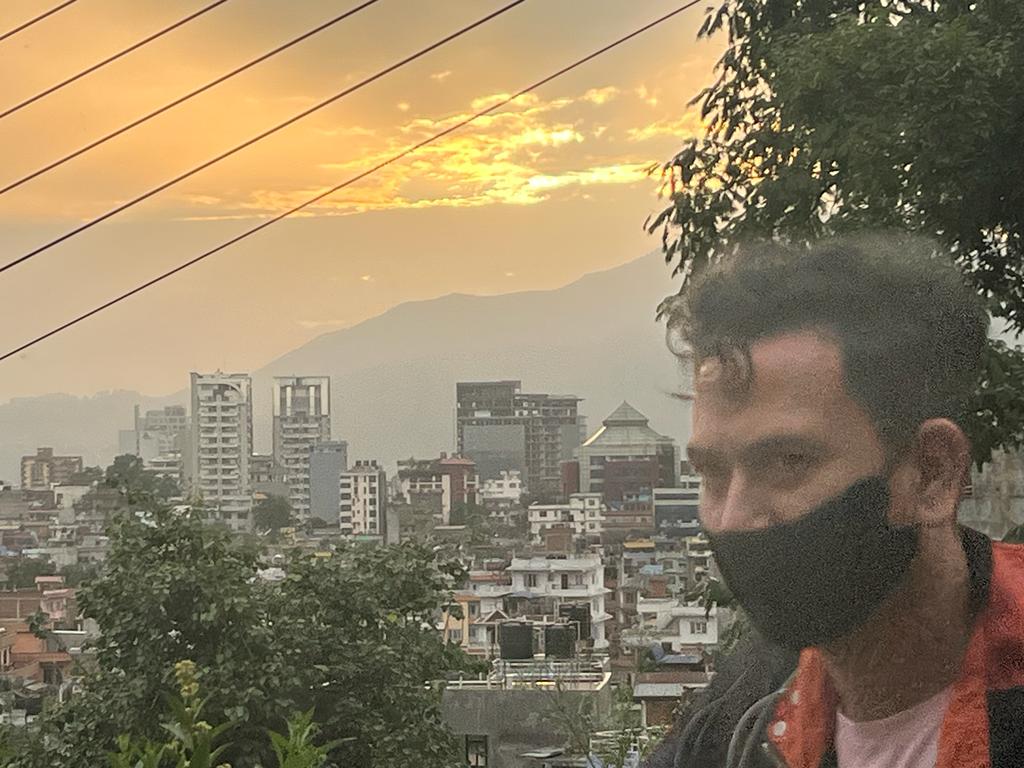Life & Health

Health officials have urged people to strictly follow Covid-19 safety measures after Nepal confirmed the first ever infection of Omicron's new sub variant BA.5 in the country. It followed sample testing in molecular and genomic sequencing research laboratory at Dhulikhel Hospital.
“We need to understand that this is not a new virus. It is the sub variant of the omicron variant,” Dr Runa Jha, director at National Public Health Laboratory, told NepalMinute: “It will be difficult to say immediately about the variant in the country but need to be vigilant about the virus and the infection spread.”
Coincidentally, the government’s daily report of the coronavirus cases shows growing cases of late. According to the Ministry of Health and Population so far 40 people have tested positive of the infection in the past 24 hours in the country.
“Though there are cases increasing there are not much hospital admissions,” added Dr Jha.
Dr Samir Kumar Adhikari, assistant spokesperson at the Ministry of Health and Population, said: “We need to follow the same precautionary safety health measures for this new variant to prevent the infection spread such as wearing a mask, maintaining social distance, washing hands et cetera”
Surge elsewhere
Just a few days ago, though, officials didn't seem much worried, with Nepali health officials ruling out another wave of coronovirus epidemic at home anytime soon despite its recent surge in North Korea and China.
As Nepal’s daily count of infection and hospitalisation from the disease has started rising recently, they have suggested people to take precautions to prevent coronavirus infection spread.
“Most Nepalis have got the vaccines and overcome Delta and Omicron variants of the disease,” Dr Anup Bastola, former Director at Sukraraj Tropical and Infectious Disease Hospital, said: “They have developed the antibodies, that means, low risk of infection or the fourth wave in Nepal.”
For a break from their frantic rush during the pandemic peaks of the past, doctors are keeping a vigil on COVID-19 cases across the border.
Covid-19 is not over
Updates on North Korea, as of June 1 since late April, show the total number of people with fever there is over 3 835 420, of which more than 3 669 950 (95.686%) have recovered and at least 165 390 (4.312%) are under medical treatment, according to the official Korean Central News Agency (KCNA), which has cited data from the state emergency epidemic prevention headquarters.
“Coronavirus cases in North Korea are high in number. But the cases in Korea or China, for that, won’t affect us much as travelling to and from these countries has not eased,” said Dr Baburam Marasini, former Director at Epidemiology and Disease Control Division under the Ministry of Health and Population.
The virus was first detected in Wuhan, China in late 2019, and has become a global pandemic. The disease, caused by the SARS-CoV-2 virus, can spread from respiratory droplets from an infected person's mouth or nose, when they cough, sneeze, speak, sing or breathe.
Health officials suggest vaccination as the key to preventing the infection, its spread, severity and resulting death.
They are keeping an eye on the number of cases in India because infected travellers can easily cross the border. According to the Ministry of Health and Family Welfare, India, as of June 30, India has 1,04,555 active cases of coronavirus infection.
When India saw its number of cases soaring earlier Nepal also followed suit. The first wave of infection in Nepal began a month after the surge in the number of cases in India. In the second wave, the Delta variant took only 15 days to spread in Nepal after its rise in India.
The India factor
“We have a pattern of rise in the number of infections in Nepal following the spread of cases in India, that is why we are continuously watching the number in India. People entering to the country from land crossings are being tested,” said Dr Samir Kumar Adhikari, Assistant Spokesperson at the Ministry of Health and Population.
Health officials announced the first case of coronavirus in Nepal on January 24, 2020. A 32-year old Nepali student who had returned from Wuhan, China, had tested positive before the epidemic took over the country, leading to health emergencies and a series of measures, including lockdown.
The health priority now is to vaccinate children, left out earlier, said Marasini. A total of 108 children and teenagers between ages 0-19 have succumbed to the infection in the country till now. As of June 30, 979,694 people had been infected from coronavirus.
“The government must collect swab from children and test them to find out the actual number of infection in the country,” added Marasini.
The government has stopped all covid related restrictions in the country for now but some safety protocols such as masks and social distancing.
“It is not yet time to throw the mask. One must practise safe health measures against coronavirus infection,” suggested Adhikari.
Same old symptoms
The most common symptoms of COVID-19 are fever, dry cough, tiredness and loss of taste or smell. Less common symptoms include aches and pains, headache, sore throat, red or irritated eyes, diarrhoea, a skin rash or discolouration of fingers or toes.
Same safety measures
- Clean hands frequently with soap and water and/or with alcohol based hand rub.
- Get vaccinated.
- Keep physical distance of at least one meter from others. Avoid crowds and close contact.
- Cover mouth and nose with a bent elbow or tissue when you cough or sneeze. Dispose the tissues and clean your hands.
- Wear a mask properly covering your nose, mouth and chin.
- If you have a fever, cough and difficulty breathing, seek medical attention immediately.

_11zon1681280198.jpg)




